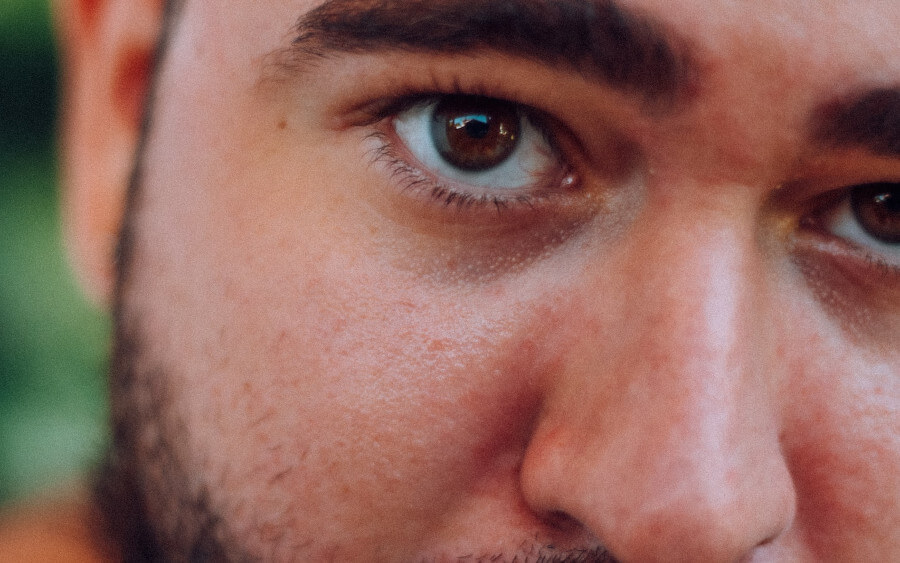What Separates “Addicts” from Recreational Users?

There is a thin line separating what constitutes an addict from a recreational user. But how do we characterise this line and where is it located? The response to that question may seem straightforward to many, but it’s actually much more complicated than most people realise. It’s a common misconception in rehab that “an addict can’t stop” makes a difference. This isn’t quite right. Addicts frequently exhibit periods of abstinence, sometimes lasting several days, weeks, or even months. Many high-functioning addicts are able to keep their drug use under wraps and largely “in-check” enough to maintain a job.
Addiction vs substance abuse is a topic that is covered in rehab. Many people think that how much someone consumes is what makes them an addict. Rehab experts, however, contend that this is also untrue. For instance, a healthy person could be able to drink 15 glasses of vino in one evening, whereas an alcoholic might actually drink less overall. Another myth we discuss in rehab is the regularity of drug use. Every night, a healthy person might have a drink, but an addict may go for much longer intervals without using. It’s a popular misunderstanding that rehab professionals correct: consumption quantity does not determine one’s addiction.
Consider a college student who might overindulge at a party and wind up in the hospital, but an addict could be able to control their use to the point where no one at work mentions. As addiction and drug abuse are two distinct issues, rehabs examine the differences between the two. For instance, a businessman might consume a large amount of alcohol after work and be stopped for driving while intoxicated. A college student might have an alcohol-induced blackout and sleep with somebody he didn’t intend to. A teen might succumb to peer pressure to use drugs before a test.
All of these people, according to rehabs, abuse drugs. They are acting irresponsibly and endangering themselves and possibly other people. But perhaps something else contributes to addiction. In rehab, we examine how someone can exercise discretion when it comes to drugs or alcohol without becoming addicted. So what factors lead to addiction?
Addiction is indeed a chemical process that occurs in the brain. Decision-making skills are hampered by this process, which alters how the brain responds to drugs. An drug user loses the capacity to make informed decisions about substances. They see compulsion as the source of their behaviour rather than free will.
Addiction is fundamentally different from binge drinking in that an addict cannot stop on their own accord. This does not imply that drug or alcohol users have no free will when it comes to the substance use. They still have some degree of free will, but it is limited. They frequently make decisions and choices that, if their brains were functioning normally, they would never make.
They could experience other symptoms of this brain dysfunction. Rehab facilities frequently see clients who have been admitted for addiction but who insist they are not addicts. These clients contend that they can abstain from drugs or alcohol for extended periods of time or when it is necessary. Once they start using, they frequently struggle to control or moderate their consumption. Addicts frequently lose control once they start using, despite the fact that they may abstain for extended periods of time. Addicts who are powerless can find relief in rehab.
HIGH FUNCTIONING ALCOHOLICS
Alcoholics who can still function may get up every day and walk right past the liquor cabinet on their way to the office. They might have a few drinks when they get home to unwind in the evening. After that, it might be very challenging for them to move onto doing something else. Addicts frequently have a blind spot when it comes to their own behaviour, which is another common characteristic.
Treatment programmes take into account the client’s trouble making decisions. Many addicts are unable to freely and consciously decide not to do destructive things because they are impaired in this way. They struggle greatly with admitting their wrongdoing and accepting responsibility for it. Rehabs assist patients in recognising when their substance use negatively impacts both their personal and social lives. Recreational drug users are able to alter their behaviour because they can see the consequences of their drug use.
DENIAL
A defence mechanism known as denial is a refusal to acknowledge reality and obstructs awareness of outside events. The individual in denial may not want to experience something if it is merely too much for them to handle. Denial is a common topic in rehab, and for the majority of patients, it plays a significant role in the therapeutic process.
Rehabilitation centres examine and dissect an addict’s denial system. This is frequently what keeps them from fully realising the harm that their addiction has done. The majority of healthy people will likely change their lifestyle after receiving a “wake-up call” such as being arrested for driving while intoxicated or having a relationship end due to drug use and behaviour. However, addicts are more plausible to place the blame elsewhere or to downplay issues that are a result of their own actions.
Patients in rehabs have experienced numerous “wake-up calls.” The issue is that they frequently don’t actually awaken and instead continue to sleep.
Rehab centres focus on confronting, processing, and treating addiction, which is a unique problem. One of the most perplexing, frustrating, and terrifying illnesses out there can be it. a condition that calls for comprehensive, addiction-focused care. Rehabilitation facilities are aware of how difficult addiction can be for many people. Addicts frequently experience the feeling that they have no self – control and that nothing makes sense. Many people ask:
Why don’t they simply stop?
“Why are they torturing themselves like this?”
Because there doesn’t seem to be anything wrong with the addict’s body, addiction is difficult to understand. Rehab centres address the challenges of diagnosing and treating addiction, emphasising that it is frequently less obvious than other illnesses. Addicts are typically in contact with reality and conscious of the decisions they are making. They hurt their family even though they are aware of their love for them. They may be aware that they will soon lose their jobs or run out of money, but they are unable to stop.
FREE WILL
Addicts appear to have free will over every other part of their lives. THIS IS ONE REASON WHY Substance abuse IS SO SCARY. They have the choice of what to eat and wear. Their absence of free will only applies to one extremely specific decision, though.
Just Stop: Alcoholism can be confusing for both addicts and the people who love them because the cure seems so obvious. Simply stop using! Addicts frequently lament their inability to stop using despite wanting to.
Family members find it difficult to comprehend that no matter whatever they do, they will never be able to change an addict’s behaviour. They have really no control over their actions, regardless of whether they bargain, yell, plead, shame, threaten, or punish. Rehabilitation teaches them that all of these strategies are effective. To start their journey toward healing, the client must participate in their own treatment.
Blame Game: Families frequently experience hopelessness, helplessness, and frustration as a result of their inability to halt the addiction-related train wreck. They may feel particularly rejected and blame themselves on occasion. Addicts’ propensity to hold those nearer to them accountable for their problems is a problem that could get worse.
Health: Drug abuse is a terrifying condition. The addict’s health and everything else they and one‘s families hold dear are in danger of being taken away. Money, jobs, friends, families, homes, social respect, independence, a sense of purpose and meaning in life, as well as the ability to appreciate anything at all, are all taken away by addiction.
Rehabs are effective at treating addiction, but there is no known cure for the disease. It can, at best, be managed as a chronic condition that lasts a lifetime, much like diabetes. However, the fact that it can be managed—and frequently is—remains a significant advancement.
IS REHAB THE SOLUTION?
More rehabs are readily available than ever. There are treatment options that can assist addicts in comprehending and controlling their illness. Treatment programmes, counselling, medication, and peer support all help those who are battling addiction. Many people are able to permanently overcome their problem on their own or with the help of treatment. Others can take advantage of protracted periods of recuperation.
While rehabs can’t magically heal addiction, we can help the client as well as their families understand it better. A good place to start is by comprehending the illness. It’s crucial to distinguish between an addict and a “heavy drinker” or a social user. If you are concerned about you or a loved one, here are some additional questions to consider.
Do they find it difficult to stop using once they get going and use for a longer period of time than they should?
Are they suffering the negative effects of their use?
Do they require progressively more to produce the desired result?
Are they hiding the consequences of their use?
They might require the assistance provided by rehabs if the answer to these questions is yes.
DETERMINING THE SEVERITY OF A SUBSTANCE USE DISORDER –
Rehabs use specific criteria to accurately diagnose the disorder’s severity. Consider some of the methods used by Rustenburg Addiction Care to evaluate addiction:
Use more than is recommended or for longer than intended
unsuccessful attempts to reduce or stop excessive time spent utilising their preferred drug
strong desire or urge to use drugs (craving)
failure to perform duties
Despite social or interpersonal issues, use persists
Due to use, activities and hobbies have decreased
use on a regular basis in physically risky situations
Recurring use despite health or mental issues brought on by or aggravated by use
When it comes to rehab, Recovery Direct Cape Town should be your first choice. We provide a thorough primary care programme in addition to an individualised and knowledgeable approach to dealing with addiction.




